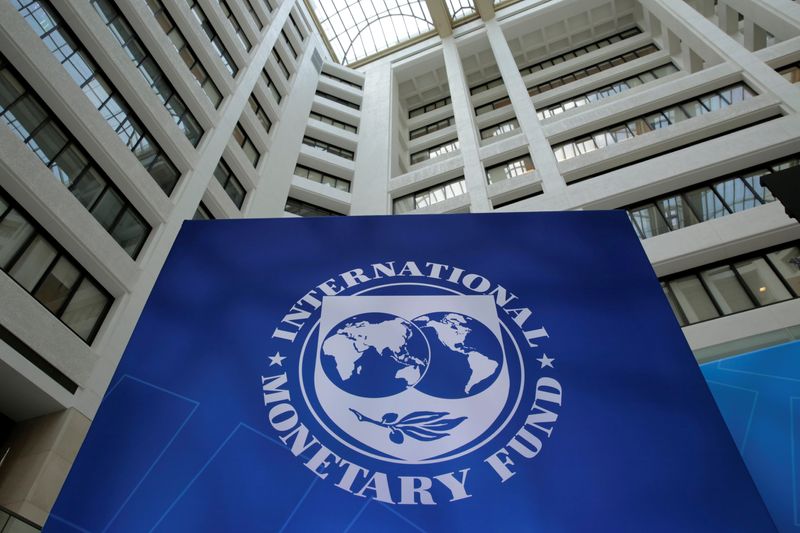IMF warns of rising odds of a ‘disorderly’ global market correction

By Pete Schroeder
WASHINGTON (Reuters) -Global markets are getting too comfortable with risks like trade wars, geopolitical tensions and yawning government deficits, which, combined with already overpriced assets, increase the chance of a “disorderly” market correction, the International Monetary Fund said on Tuesday.
Underscoring the IMF’s warning, President Donald Trump’s revived threats on Friday to hike tariffs on China stoked investor fears of a major asset price correction. The comments sparked a sell-off in U.S. stocks and sent bitcoin tumbling.
Despite this recent volatility, markets have mostly been resilient since April, when Trump unleashed his trade war, underpinned by expectations of monetary easing in most major advanced economies. However, this market optimism masks the potential damage from tariffs and high government debt. The IMF warned that the close ties between banks and less-regulated financial firms could amplify these risks.
“Beneath the calm surface, the ground is shifting in several parts of the financial system, giving rise to vulnerabilities,” the body wrote in its semiannual Global Financial Stability Report.
“Valuation models indicate that risk asset prices are well above fundamentals, increasing the probability of disorderly corrections when adverse shocks occur,” it wrote.
Despite some negative economic data, equity and corporate credit valuations are “fairly stretched” as enthusiasm over AI mega-cap stocks drives historic stock market concentration. That creates the risk of a “sudden, sharp correction” if expected returns fail to justify lofty valuations, the IMF said.
ASSET PRICES SIGNAL DANGEROUS BUBBLE TERRITORY
Analysis of sovereign bond markets also highlights growing pressure from widening fiscal deficits on market functioning. While bond markets have been mostly stable so far, abrupt jumps in yields could strain bank balance sheets and pressure open-ended funds like mutual funds, the IMF said.
U.S. bond markets sold off last month as concerns about global fiscal health escalated, although the pain was quickly reversed and bonds rallied on weak economic data.
The IMF added that central banks should remain alert to tariff-driven inflation risks and take a cautious stance on monetary easing to minimize further valuation spikes in riskier assets. Central bank independence is “critical” for anchoring market expectations and allowing those institutions to fulfill their mandates, it added, without referring to a specific institution.
Do you want to build your own blog website similar to this one? Contact us







